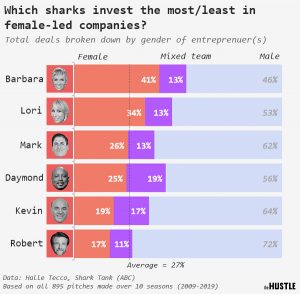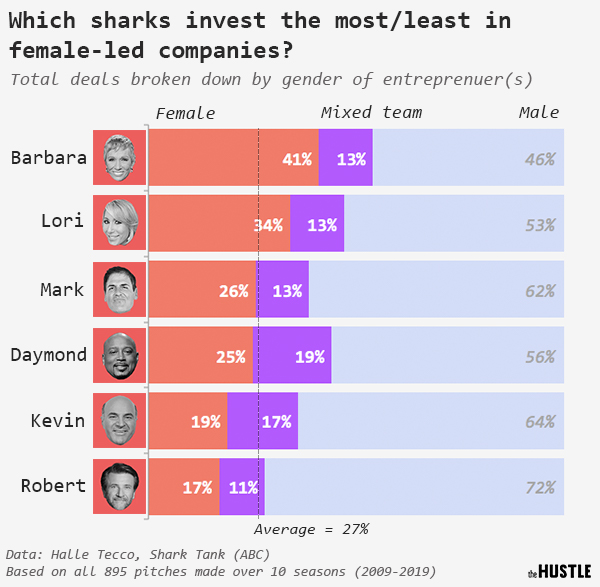
ABC’s hit television series, Shark Tank, features aspiring business owners who aim to pitch their product or service to five “sharks” in hopes of a partnership with one or more of the sharks to take their business to new heights. The Sharks, who are well established entrepreneurs, take many factors into account when deciding whether or not to invest in the hopeful entrepreneurs companies.
The Sharks on the show come from all different backgrounds and have all built their wealth in different ways. Mark Cuban, the owner of the Dallas Mavericks, Kevin O’Leary, a Canadian businessman, reality television star, Lori Grenier, dubbed the “Queen of QVC”, Daymond John, an American business owner, Robert Herjavac, a Croatian software mastermind, and Barbara Corcoran, an American businesswoman.
The show is a search for the next big business, innovator, or company. The pitch to the Sharks has to be A1 and have booming potential if they want to have any shot at getting a Shark on board to help them hit the ground running.
While observing the contestants’ pitch, the sharks take notes and jot down questions on anything that may be of importance. Risk v. reward, investing totals, input and output, royalties, copyright and patents, market competition, manufacturing concerns, and product cost and placement are just a few of the most frequent questions sharks have when deciding on if they should invest in the company or not.
On Shark Tank, there is a growing notion and facts that back up the bias that women receive less investment on the show due to their social status when compared to their male counterparts. On the show, there is some sort of vibe or eerie feeling in the negotiations that somehow drives down women’s valuations and therefore force them to settle for less than what they asked. When the Sharks listen to the pitches, implicit bias, or the messages and stereotypes we pick up from social influences often creeps into an investor’s decision-making. “Studies show that men are judged on their potential, whereas women are judged on what they already have accomplished”. This is what sets the men apart from the women when in the Tank.
Jesse Gennet, owner of Lumi, a custom office supply company, asked for $250,000 for 5% of her company. After speaking with sharks, none matched her valuation and they all offered ridiculously lower valuations while shark Kevin O’Leary called her offer, “ridiculous”. She refused them all and defied the odds while going on to grow her brand to a $2.5 million dollar booming business. On the show, men tend not to be as flexible and hold a firm ground on their valuations while also asking for more money from the Sharks.
In an interview with CNBC Make It, O’Leary, ironically says that women-run companies make him the most money and therefore are more successful than their counterparts on the show. O’Leary says that women have the three skills that lead their company to success including; time management, setting realistic goals, and the ability to receive constructive criticism.
Gender inequality in the workplace is a recurring bias. The stigma that women can’t do things as well as men is far gone in today’s world. The show is built in a way that shows men being the alpha in the world of entrepreneurship due to their strong beliefs and confidence in their company and inept ability to comply and cooperate on new valuations from the Sharks. Even though men may receive more attention or pay, it’s beyond difficult to overlook the drastic achievements that women portray on a show like Shark Tank even when the odds are stacked against them.
https://mashable.com/2016/01/15/shark-tank-women-
entrepreneurs/https://www.cnbc.com/2018/03/22/shark-tanks-kevin-oleary-women-make-me-the-most-money.html
